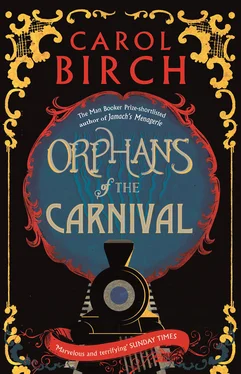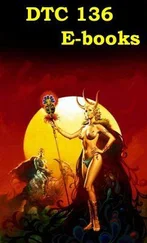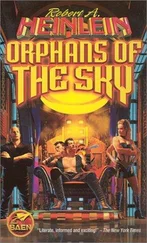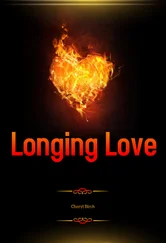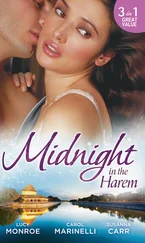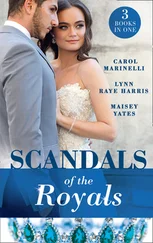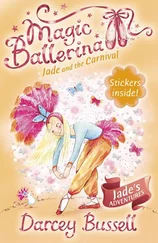Your talent. Such as it is .
It all flooded in, Don Pedro, Solana and her room and the young men coming and going with their friends, calling her out to sing in the patio, and the fig tree and the stone seat and the steps going up to the gallery. Don Pedro the last time she saw him, his sad farewell to the family dog.
The future was as far away as the past. She was frightened, as if time dispersed in all directions, but there was something intoxicating about the moment too. Where was everyone? Beach had gone out. It was half past three in the afternoon. She was on the third floor and could see below a young man holding his head beneath the pump, people walking up and down, flashy long-haired boys in wide trousers, girls strolling about on their own as if it was the most natural thing in the world to do. The window was open and she heard the sound of traffic from the wharves. She went to the mirror, a mottled ailing thing in a tarnished gilt frame, looked at her face and wished that at least her neck could have been a bit longer. Just that. ‘I’m not a prisoner,’ she said aloud. He couldn’t tell her what to do. ‘He’s a manager,’ she said, ‘not a jailer.’
She still had some of the money she’d left home with, as well as a fair bit from her earnings.
She put on her cloak and bonnet, her veil and gloves, picked up her purse and went out onto the landing. The house was quiet. She ran lightly down to the front door and out. It was cold, but her cloak was a good one and she huddled down in it. The brownstones all looked the same. Wouldn’t do to forget the number. She knew where to go, she’d watched from the carriage window on the way to the theatre and seen it all, people clambering on and off the streetcars, carriages in a line waiting for passengers. She kept to the edge of the sidewalk, walking quickly past the row houses and stores to the corner. Down side streets, high tenements went on forever. Kids were everywhere, oblivious to the cold, gangs of them on the roam.
At the corner she stopped and looked about. Nobody took any notice of her. People rushed up and down the street. Two flashy young men were waiting for the streetcar, so she went and stood a little way from them, observing through her veil.
‘So I says to him,’ said one in a high-pitched whine that reminded her of Ezra Porter’s voice, ‘I says, what you wanna do dat for, huh? Looks like you wanna get mowed, dat what you mean, huh?’
At least she thought that’s what he said. His hair was brilliant with oil and swept up high on his head.
‘Lillian says so,’ the other replied in a darker voice, ‘she says he do it all the time, no matter what.’
She couldn’t take her eyes off them. The cigars wagged up and down on their lips as they spoke, and they wore gold chains across their waistcoats. She felt like a ghost. When the streetcar came she followed them on and offered the driver a handful of money. She had no idea what it cost.
‘Broadway,’ she said. The driver looked at her hand and laughed.
‘Lady,’ he said, ‘for that you can ride around all day if you want to.’
‘Oh,’ she said, ‘that’s very nice.’
He looked at her strangely, then scooped up the cash and gave her some change. The streetcar was crowded but she found a seat half way down. No one else wore a veil. A fat man in wide trousers stared at her. She sat very still. A squash of girls in black shawls and brightly coloured bonnets babbled and laughed as if no one could hear or see them. The streetcar was too close-packed and getting more so, and the noise was crazy. A woman with a kind, worn face stooped to smile at her. She thinks I’m a little girl, thought Julia. A little girl in a veil alone on the streetcar. She coughed genteelly into her gloved hand and nodded, and the woman passed on. Her heart thumped. There were other glances. When the girls swirled down the aisle to get off, she followed.
She stood in the street and trembled, feeling too small. Which way? Which way? This way, that way, nothing she remembered. A fine white sleet began and she pulled her cloak tight. If I didn’t have to wear this, she thought, they’d see my figure and know I wasn’t a child. She’d never seen so many people up close. A bell chimed from the tower of a church and she looked up. The spire soared above the buildings. A carriage clipped past with a footman in blue livery on the back. Here I am, Julia Pastrana on Broadway, alone. All the swells, she never saw anything like it, strolling along in their shiny shoes. Swaggery men and girls with done-up hair, the women’s dresses taking up half the sidewalk. She got a sudden urge to pull off her veil and just walk along and see what happened. Shame. Shame, but so it was and so it always had been. The air was full of a hot peanut smell. Julia felt light-headed and stood still for a moment with the people sweeping past in both directions. The buildings were grand and high, and a few had flags flying on the tops. There was nowhere to sit down, just some wide steps in front of a bank, already taken up by half a dozen or so raggedy little kids holding out their caps for money. Poor little faces. The sleet turned to fine rain, and she walked on and on and after a while the dizziness passed. No one was looking. She must stay hidden, not just for safety, not just to guard the mystery and make them pay, but so as not to frighten the children. You couldn’t go around frightening children in the street, it would be too cruel.
She had to keep moving, it was too cold to stop. All the stores were open. A great crush of carriages had tangled up at the crossroads and everyone was shouting and swearing. So this is it, she thought. Here we are, the big life. People playing music on the sidewalk, selling you soda water, hot corn and roasted peanuts. She bought a comb from a booth, one that would build her hair up beautifully at the front, with a clasp made like a treble clef. The woman said it was made of shell. Further on she came to a long stretch of pavement where men in tights were calling people in to see the freaks: the giants, the midgets, the mermaids and savages and pinheads. Not one of them was like her. One of a kind, Mr Beach had said. Bearded ladies by the score, he said, oh yes, but no one like you. Madame Clofullia has a fine beard but you—
A drunk reeled from a saloon and nearly knocked her over.
‘Molly dear!’ he boomed, big red beaming face in hers, ‘I beg your pardon.’
She flinched and hurried on.
‘Wait a while,’ he called after her, ‘I meant nothing…’
But she didn’t look back. She walked on and on. The stores were bright and the streetcars rattled along, the poor scrawny horses clip-clopping in time. There seemed always to be music coming from somewhere, from windows and doors, and the sounds of singing and glass against glass, the plinking of a pianola. A crowd was surging over the next crossing so she went with them, turned and started walking back down the other side. A child selling papers, a boy no more than nine, bawled loud enough to deafen her. Such a fright he’d get if she drew back the veil. Go on, Julia. Just because you can. But she didn’t. Sleet again, small specks falling against a dark grey light.
She must start back. She knew the name of her stop, the name of her street. When she reached the jammed-up crossing again, she slowed down and walked carefully, studying the carriages intently. Why not? She had enough. A well-heeled lady and gent were getting down from one just in front of her, and she ran a few steps in her eagerness. Her boot heel skidded in the wet and she nearly fell, her heart thumping up into her mouth, and for a terrible moment she thought she was going to burst into tears, so strange and dangerous everything seemed. Supposing she knocked her head, and they picked her up and lifted the veil and — it didn’t bear thinking about. She righted herself. Ignoring his slightly wary look, she gave the man her address and climbed up into the welcome sanctuary of the musty carriage, still bearing a trace of the musky perfume the well-heeled woman had worn.
Читать дальше
